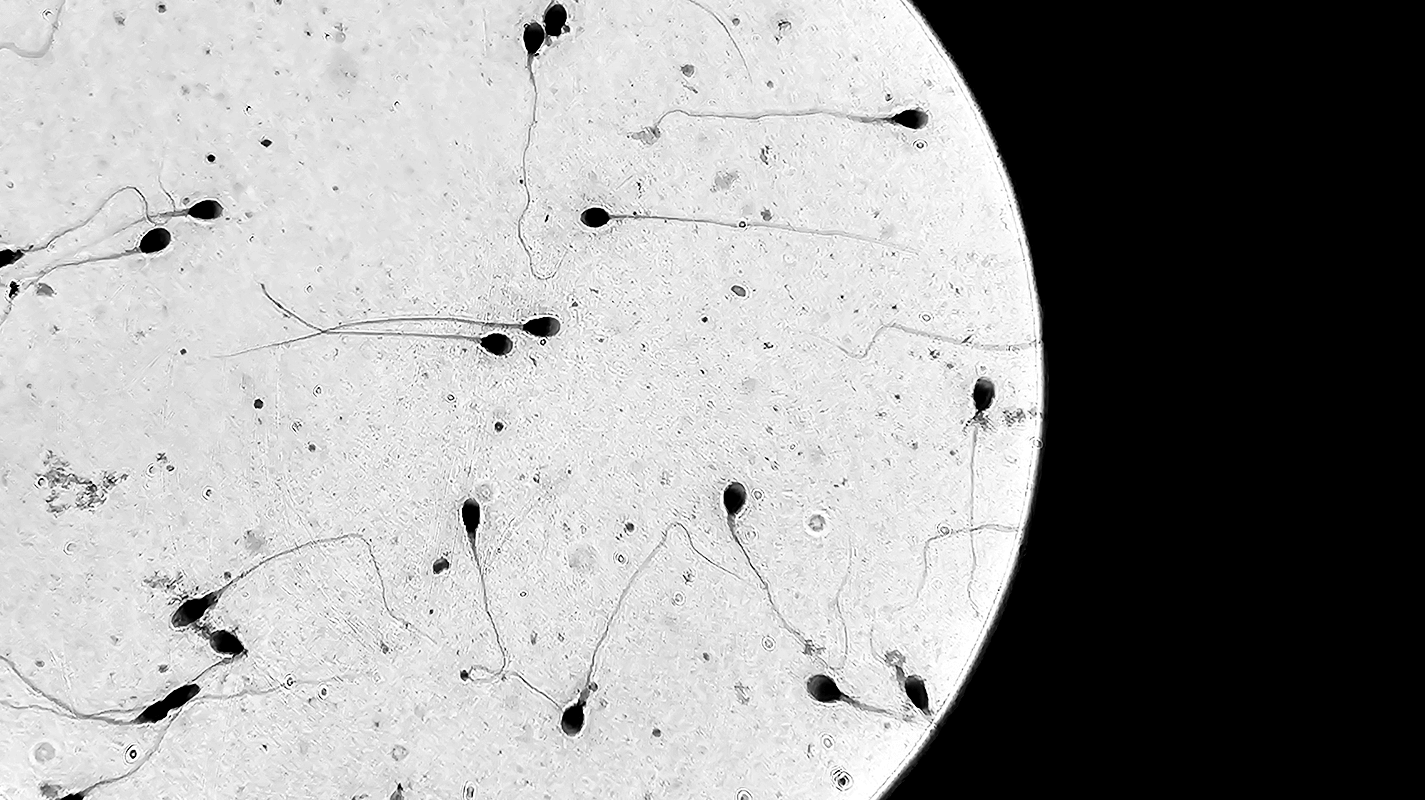Why Can’t I Get Pregnant After Several Months of Trying?

The desire to build a family is profound and genuine. That’s why, when pregnancy doesn’t happen, questions, uncertainty, and the need to understand what’s going on naturally arise. Infertility affects both women and men, and understanding its causes is the first step toward finding solutions. In this blog, we explain which factors influence fertility, which medical tests can help, and what treatments are available at Fertilidad Integral, where every story is supported with cutting-edge science and human warmth.
What Is Infertility and What Are Its Types?
Infertility is defined as the inability to achieve pregnancy after 12 months of unprotected sexual intercourse (or 6 months in women over 35 years old). There are two main types:
- Primary infertility: when pregnancy has never been achieved.
- Secondary infertility: when, after a previous pregnancy, the couple is unable to conceive again.
Both situations require medical attention, as they may be linked to ovulation problems, sperm quality, fallopian tube obstruction, or lifestyle factors.
Main Causes of Female and Male Infertility
Ovulation problems
Ovulation is essential for pregnancy to occur. Conditions such as polycystic ovary syndrome (PCOS), hormonal imbalances, or low anti-Müllerian hormone (AMH) levels can affect ovarian reserve and egg quality. The absence of egg release also limits the probability of pregnancy.
Uterine and fallopian tube issues
Blocked fallopian tubes, fibroids, endometriosis, or previous infections such as chlamydia or gonorrhea can prevent the fertilized egg from reaching the uterus. Hysterosalpingography, a test that evaluates tubal patency, is essential for diagnosis.
Lifestyle-related factors
Excessive alcohol consumption, high caffeine intake, smoking, stress, and lack of sleep may increase the risk of infertility. Maintaining a healthy lifestyle (balanced diet, moderate exercise, and stress management) supports fertility in both women and men.
Male infertility
Sperm quality can be affected by infections (chlamydia, gonorrhea), anatomical problems such as varicocele, exposure to toxins, or unhealthy habits. These factors influence sperm motility, count, and morphology.
Emotional and Psychological Impact of Fertility Problems
Infertility is not only a medical challenge but also an emotional one. Social pressure, frustration from failed attempts, and possible miscarriages can lead to anxiety or depression.
At Fertilidad Integral, we understand that each story is unique. That’s why we integrate psychological care and complementary therapies such as nutrition and acupuncture, creating a reproductive care space that nurtures both body and mind.
Medical Tests to Diagnose Infertility
When possible fertility problems arise, the first step is a thorough medical evaluation. Common tests include:
- Hysterosalpingography: checks for fallopian tube blockage.
- Hormonal studies: measure hormone levels such as FSH, LH, and prolactin.
- Anti-Müllerian hormone (AMH): measures ovarian reserve and egg quality.
- Semen analysis: evaluates sperm quality.
- Gynecological ultrasound: detects fibroids, endometriosis, and other uterine abnormalities.
Treatments Available When Pregnancy Doesn’t Happen
At Fertilidad Integral, we know each case is unique and that the causes of infertility may range from ovulation issues to factors such as sperm quality, age, or conditions like endometriosis or PCOS. For this reason, we offer different assisted reproduction options tailored to each situation.
Timed intercourse
This treatment involves synchronizing fertile days to have sexual intercourse exactly when egg release occurs. It’s recommended when ovulation problems or irregular cycles make it difficult to identify fertile days. Although simple, when supervised by a gynecologist, it can be the first step toward improving pregnancy chances in cases of mild female infertility.
Intrauterine insemination (IUI)
IUI is a low-complexity treatment where sperm is introduced directly into the uterus during fertile days. It is especially useful when there are cervical mucus issues, low sperm quality, or after several months of unsuccessful attempts. It’s also an alternative for women over 35 with good ovarian reserve who want an extra boost.
In vitro fertilization (IVF)
IVF is the most advanced treatment for addressing complex fertility problems. Fertilization occurs in the lab, and the fertilized egg is later transferred to the uterus. IVF is recommended in cases of blocked fallopian tubes, severe endometriosis, significant male infertility, recurrent miscarriages, or low egg quality. It also allows complementary tests such as hysterosalpingography and AMH testing to assess ovarian reserve.
An Essential First Step: The Initial Consultation
Before deciding on any treatment, at Fertilidad Integral we always recommend scheduling a first-time consultation. This appointment helps review your history, evaluate hormone levels, and detect possible causes of infertility to offer the best personalized option.
You can check consultation prices at our locations:
Take the first step with specialized medical care and find answers to your fertility questions.
Prevention and Early Detection of Infertility
Regular visits to the gynecologist, maintaining healthy habits, and promptly treating infections such as chlamydia or gonorrhea are key to reducing infertility risk. Recognizing irregularities in menstrual cycles and seeking medical care early in case of possible causes of infertility increases pregnancy chances.
Why Choose Fertilidad Integral?
At Fertilidad Integral, we don’t just provide medical treatments—we offer comprehensive care. Our Guadalajara clinic features state-of-the-art technology like PharmaWatch (real-time environmental monitoring) and RI Witness (a radiofrequency identification system ensuring sample safety).
Beyond science, we care about emotional well-being. Psychologists, nutritionists, and wellness specialists work alongside you so every step feels safe and supported. Everyone who visits our clinics finds a human, approachable, and stigma-free space.
Frequently Asked Questions About Infertility
When should I see a gynecologist if I can’t get pregnant?
If you’re under 35 and have been trying for more than 12 months, or more than 6 months if you’re over 35, it’s time to consult a specialist in assisted reproduction.
What are the main causes of female infertility?
The most common include ovulation problems, blocked fallopian tubes, fibroids, endometriosis, and low ovarian reserve.
Which tests are needed before starting fertility treatment?
They may include hormonal studies, hysterosalpingography, semen analysis, and AMH testing.
Is male infertility common?
Yes. In around 40% of infertility cases, the male factor plays a role (WHO, 2023).
What pregnancy success rates does IVF offer?
Depending on age and egg quality, IVF can reach 50–55% success in women under 35.
How does lifestyle affect fertility?
Factors like excessive alcohol, smoking, caffeine, and stress can negatively impact fertility in both men and women.
What’s the difference between IUI and IVF?
IUI is less invasive and less costly but has lower success rates (15–20%). IVF is more complex but offers higher success rates (50–55%).
Can I freeze my eggs if I don’t want to get pregnant yet?
Yes, it’s increasingly recommended, especially for women over 30, to preserve egg quality.
What is hysterosalpingography and why is it done?
It’s an imaging test using contrast to evaluate fallopian tube patency. It’s crucial for detecting blockages.
Why choose Fertilidad Integral for my treatment?
Because we combine world-class science, unique safety protocols in Mexico, and human support at every step.
Schedule your first consultation at Fertilidad Integral and take the first step in your fertility journey with the confidence of being supported by specialists and cutting-edge technology.
References
- World Health Organization (WHO). (2023). Infertility definitions and challenges. https://www.who.int
- American Society for Reproductive Medicine (ASRM). (2022). Reproductive facts and treatments. https://www.asrm.org
- Red Latinoamericana de Reproducción Asistida (REDLARA). (2023). Assisted reproduction success reports. https://www.redlara.com







